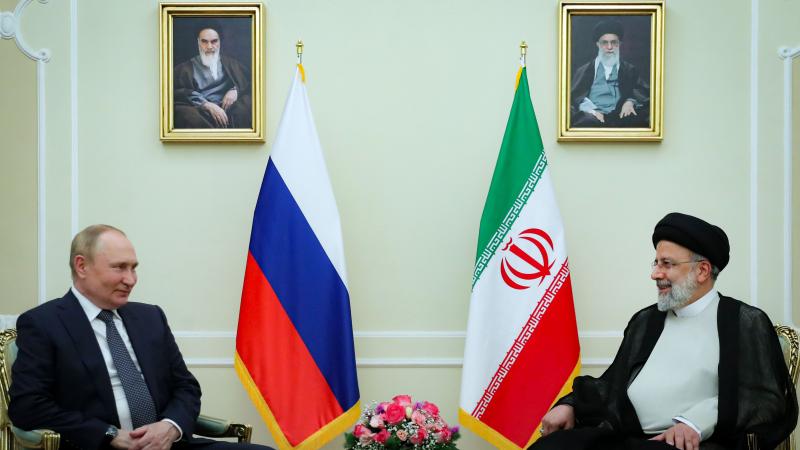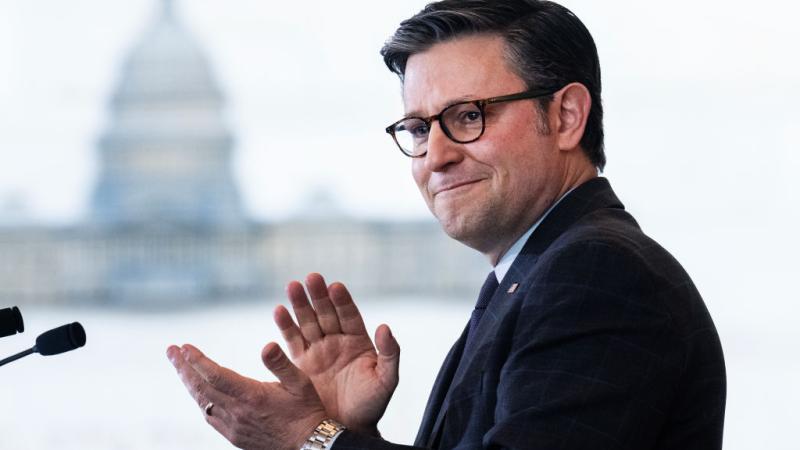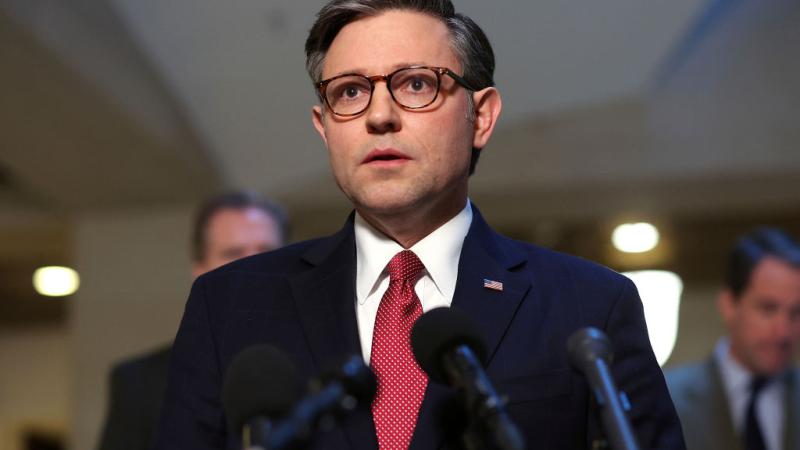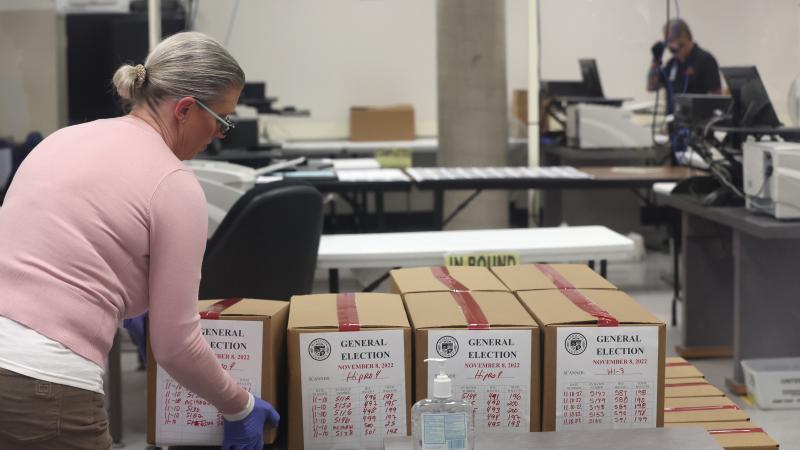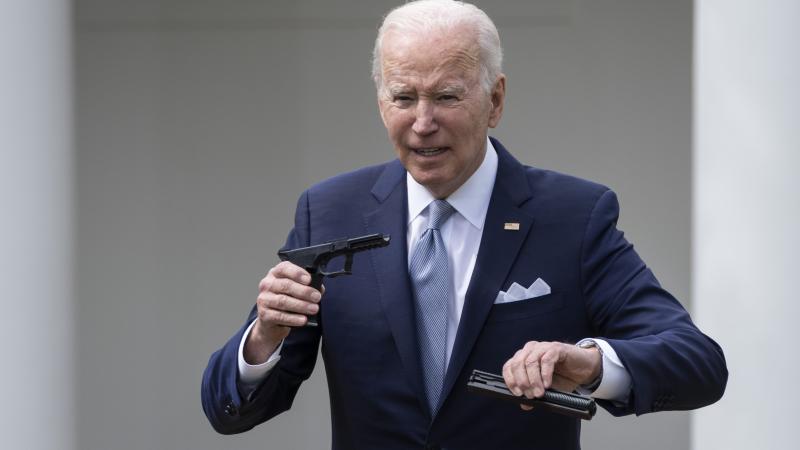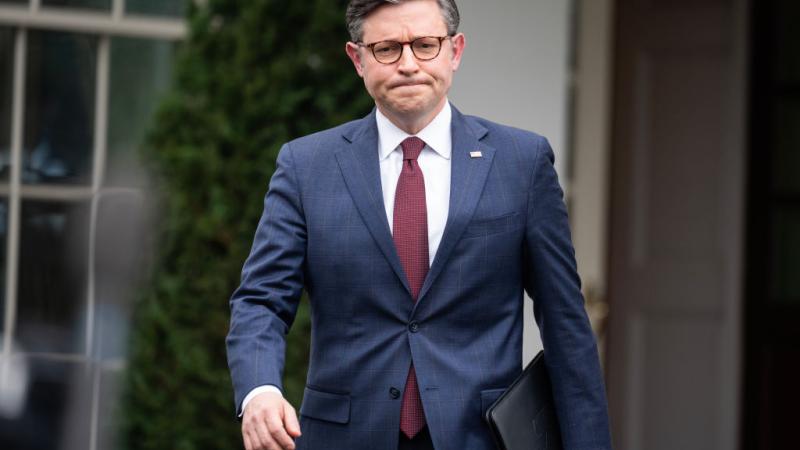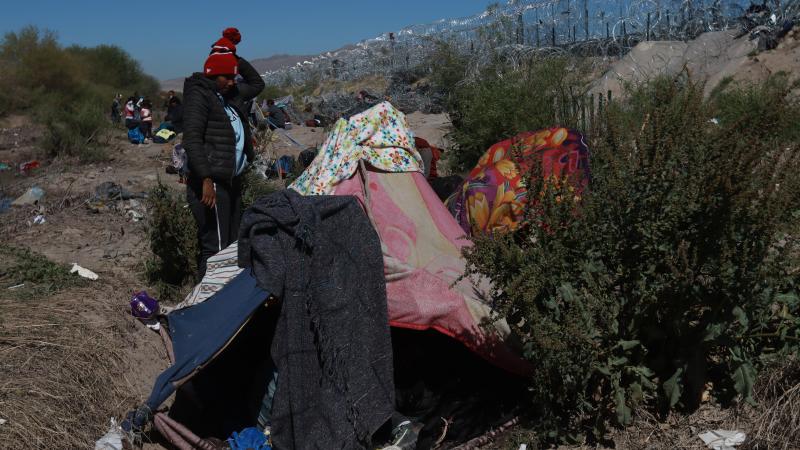FBI vindicates Trump warnings about Chinese tech giant Huawei
Fears of espionage, nuclear weapons, invasion of Taiwan spur renewed security focus on Beijing.
The FBI's reported conclusion that Chinese telecommunications company Huawei placed equipment on American soil capable of disrupting military communications overseeing U.S. nuclear weapons echoes long-held concerns of the former Trump administration about China using private tech companies to spy on the U.S.
The resurgence of concern over alleged Chinese espionage through Huawei comes as Congress, the FBI, and the Pentagon warn that the threat posed by China to the U.S. and its allies is growing across the board and could reach a fever pitch in the foreseeable future.
Federal officials quietly killed the construction of a Chinese garden on one of the highest points in Washington, D.C. just two miles from the U.S. Capitol after counterintelligence agents became concerned the $100 million project was a way for China to increase its spying capabilities inside the U.S., according to a new CNN report.
The decision to cancel the garden was part of a sweeping, yearslong U.S. counterintelligence effort to investigate Chinese espionage on American soil — an effort that's found a pattern of attempts to install Chinese-made Huawei equipment atop cell towers near U.S. military bases in the rural Midwest.
According to CNN, the FBI determined this equipment was capable of capturing and disrupting Defense Department communications — including those used by U.S. Strategic Command, which oversees the country's nuclear weapons.
The report came amid ongoing concern in Washington about China's large-scale nuclear buildup, which has alarmed U.S. officials.
Last year, Adm. Charles Richard, the commander of U.S. Strategic Command, said "'breathtaking' may not be enough" to describe the growth of China's military capabilities. He told lawmakers he ordered all briefs on China's nuclear weapons to contain no intelligence vetted more than one month earlier "because it's probably out of date" that quickly.
Apparent attempts by China to use Huawei technology to disrupt U.S. nuclear activities will likely only increase concerns about Beijing closing the military gap with Washington.
"We need to urgently eradicate Huawei from U.S. networks," tweeted Sen. Marsha Blackburn (R-Tenn.) in response to the CNN report.
"We've known for a long time that Huawei is a bad actor — but the Chinese Communist Party uses all of its technology companies to harm the United States," added Sen. Tom Cotton (R-Ark.). "Why would you trust any of them?"
Widespread public concern about Huawei began during the Trump administration, which put unprecedented political and economic pressure on Huawei, placing restrictions on the tech giant and warning that it was a vehicle for Chinese espionage.
"We don't want their equipment in the United States because they spy on us," then-President Trump said in August 2020. "And any country that uses it, we're not going to do anything in terms of sharing intelligence."
Trump's comments came as the Commerce Department cut off Huawei's access to U.S. components and technology.
Days before Trump left office, his administration revoked certain licenses to sell to Huawei and rejected applications to supply the firm.
Former Trump administration officials responded to the CNN report by noting the pressure they applied to Huawei, arguing more action is needed.
"FBI investigations confirm what we knew in [the Trump administration]: The CCP uses Huawei equipment to conduct espionage, even disrupt essential national security operations," tweeted former Secretary of State Mike Pompeo. "They're inside the gates. Huawei = Chinese spies. Ban Huawei and take this threat seriously."
Ajit Pai, who served as chairman of the Federal Communications Commission during Trump's tenure, added he hoped "the full story can and will be told someday about all the work done from 2017-2021 to help secure U.S. communications networks."
Pai linked to a speech he delivered last January in which he outlined a host of steps taken by the FCC under his leadership to blacklist and combat Huawei and other Chinese companies deemed threats to national security.
"While Huawei positions itself as a private company, it has significant ties to the Chinese government — namely, the Communist Party and China's military," said Pai. "Moreover, China's National Intelligence Law requires all companies subject to its jurisdiction to comply with requests from the country's intelligence services. These requests cannot be disclosed to any third parties, such as Huawei's customers in China or abroad.
"That means China could compel Huawei to spy on foreign individuals and businesses and prevent Huawei from disclosing such surveillance requests. And this isn't just hypothetical: Independent cybersecurity experts have found numerous backdoors and other vulnerabilities in Huawei equipment and firmware that put private information carried by that equipment at risk."
According to documents uncovered in late 2020, Huawei tested facial recognition software that could identify and notify police about Uyghurs, a predominantly Muslim ethnic minority. Since 2017, the Chinese government has reportedly imprisoned more than a million Uyghurs in concentration camps, and both the Trump and Biden administrations have accused China of committing genocide against the Uyghurs.
President Biden has continued key aspects of his predecessor's hard-line approach toward Huawei. In November, he signed legislation to prevent companies like Huawei that are deemed security threats from receiving new equipment licenses from U.S. regulators. Biden has also extended a Trump-era executive order prohibiting U.S. companies from using telecommunications equipment produced by firms posing a national security risk, including Huawei.
However, the Biden administration has also taken steps to soften Washington's hard line in apparent overtures to Beijing. The administration last year approved special licenses worth hundreds of millions of dollars allowing Huawei to purchase chips for components in its smart cars, such as screens and sensors.
Last year, the U.S. also allowed Meng Wanzhou, the chief financial officer of Huawei, to return to China without going to trial as part of a compromise deal.
Canadian authorities had arrested Meng in 2018 at the request of the Trump administration. She was charged for bank and wire fraud in the United States and was awaiting extradition. Meng and Huawei were accused of serious crimes, including stealing trade secrets and obstructing a criminal investigation. She also admitted to lying about evading U.S. sanctions on Iran.
Earlier this year, Meng was promoted to one of Huawei's three rotating chairmen.
Despite Huawei coming under intense scrutiny, the company still holds some sway in elite circles in Washington. Last year, for example, the firm hired veteran Democratic lobbyist Tony Podesta as a consultant and paid him $500,00 during the third quarter.
The new CNN report on Huawei was published two days after Reuters reported the Biden administration was investigating the company over concerns that U.S. cell towers near military bases and missile silos fitted with Huawei equipment could capture sensitive information and transmit it to China.
Both China and Huawei have consistently denied the company's involvement in any espionage activity.
"The U.S. government abuses the concept of national security and state power to go all out to suppress Huawei and other Chinese telecommunications companies without providing any solid proof that they constitute a security threat to the U.S. and other countries," China's embassy in Washington told Reuters.
The Global Times, a Chinese state newspaper, ran a story quoting Chinese experts slamming CNN's report as "an ignorant assumption."
Beyond Huawei, U.S. officials have also been warning about another potential threat from China: the invasion of Taiwan, a self-governing democracy which Beijing considers a rogue province that must be united with the Chinese mainland — by force if necessary.
"I think the risks of [an invasion] become higher, it seems to us, the further into this decade you get," CIA Director William Burns said last week at the Aspen Security Forum. It's "less the question of whether the Chinese leadership might choose some years down the road to use force to control Taiwan, but how and when they would do it."
Burns added that China is "trying to study the lessons" of Russia's invasion of Ukraine and apply them to their planning for Taiwan.
More broadly, Gen. Mark Milley, chairman of the Joint Chiefs of Staff, said during a trip to the Indo-Pacific over the weekend that the Chinese military has "become significantly more and noticeably more aggressive" in recent years.
Burns and Milley's comments come as White House and Pentagon officials are reportedly warning House Speaker Nancy Pelosi (D-Calif.) about the risks of her planned trip to Taiwan next month.
Lawmakers from both parties have expressed support for the trip, which China has publicly opposed. The Chinese government has said there will be significant consequences if Pelosi travels to Taiwan.

